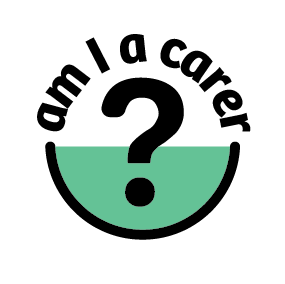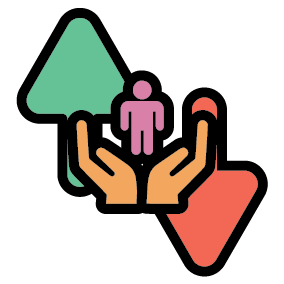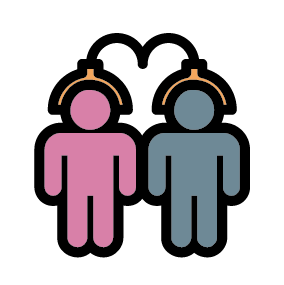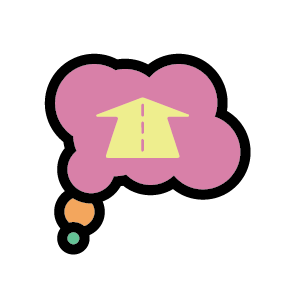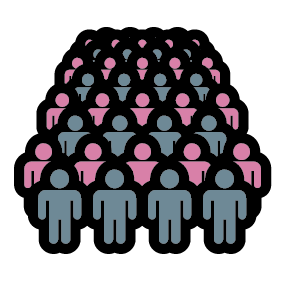Growing up as a carer
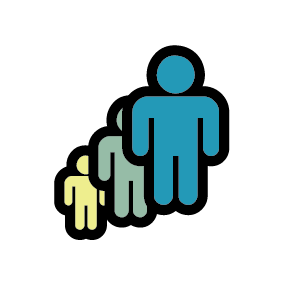
Adolescence – with the related transition from childhood into adulthood- is a critical period in the life of every young person, all the more so for young carers. Adolescence is often a ‘major decision time’: you need to make core decision regarding pursuing life aspirations, careers and goals in general. Further studies, moving out, employment and decisions regarding how a current caring role will, or will not fit may weigh on your mind.
You may find yourself living new experiences (e.g. romantic relationships, sex) and wanting to try new things (e.g. alcohol or drugs).
See here how to best deal with these transitions.
I was constantly blocked by feelings of guilt
The only way to truly follow one's ambitions is to have support in taking care of someone. If you are alone, the role of caregiver tends to occupy all the time you have available, not leaving room for your passions and, in some cases, not even for your own duties, such as, for example, for homework. Years later, I think as a teenager I could have tried to contact my general practitioner - it was...read more→
You call it dysfunctional
Dysfunctional behavior. That’s the name you give it, but do you really know what it is? You make the diagnosis, give me exemption from classes at school or give me a new home. You say you want to help me, to remove my “unsettling” behaviour, my dysfunctional behavior. You watch me cut myself. I make ugly gashes and wounds in my delicate youthful skin. You watch the blood running and the scars appearing. You...read more→
You have the right to be recognised as individual beyond your caring roles, in all aspect of your lives. You have the right to progress in your life without any detrimental impact on your life opportunities or the level of care for the person you are caring for.
When contemplating moving out of the family home or relocating for study or employment opportunities, ask for information about your options and available support.
Here are examples of the assistance you can receive:
- Support to identify options of moving out of home.
- Careers advice that takes account of your caring responsibilities.
- Information about alternative care for the person you cared for.
- Financial advice.
- Information about bursaries and support available at further and higher education institutions.
- More information about different degrees and options for further education. Remember that tertiary studies are not limited to university study: apprenticeships and traineeships are valued steps towards professional and trade careers leading to employment or self-employment.
You can ask these information to a study/career counsellor and ensure that this person include your family responsibilities into the discussions.
It is perfectly normal, often when children become teenagers, that they find themselves attracted to others and want to start a relationship with them.
Just because you are a young carer does not mean you cannot pursue a romantic relationship. You may have to face some extra challenges, such as fear of intimacy (because it means losing control) or commitment issues. Be aware of these dynamics, try to work on them and talk about it (whith the person you like or someone else who can help you).
If you do start a relationship, the other person will probably be impressed that you are a young carer. You don’t have to tell them everything about your caring role at first; you can wait until you both know each other better and then tell them slowly.
Unfortunately, during your relationships there will be times when you are upset, and you might experience heartbreak. There might be other times when you really like someone but they are not attracted to you. Those heart-breaking emotions always pass, however bad they might feel at the time. Relationships will make you both happy and sad, but overall they are very good and certainly worth the effort. Being with someone who cares about you will build your self-esteem and bring out the best in you.
It is perfectly normal to take risks and it is actually an important part of growing up and becoming an adult. Taking risks allows a child to explore their abilities, and having a good understanding of risk will help with future decisions as an adult.
Healthy risk-taking includes activities like sport, volunteer activities, travelling or entering competitions. These activities have the possibility of failure, but the consequences of losing are not serious.
Unhealthy risk-taking behaviour includes activities like playing truant from school, smoking, drinking excessive amounts of alcohol, stealing and unprotected sex. These activities have potentially very serious consequences, which could affect an individual’s entire life.
As a young carer who is used to handling stress, you might feel able to cope with any risks and their consequences. Always remember, though, if things do go wrong, you might have to live with some serious consequences. If you are not happy with the possible consequences, don’t take the risk.
Drugs or alcohol might be a quick fix but the consequences can be long term.
If you have experimented with alcohol and drugs, you need to be honest about how much you used and whether it was a positive experience. Did you do things you regret? Do you feel that you need the alcohol and drugs to cope with your situation? If you are starting to use too much alcohol and/or drugs you need to ask for help.
You might feel you have to do things because other people around you say so, which is known as peer pressure. Don’t do anything you don’t want to do. If people like and respect you they will not force you to do something you don’t want to. If someone is trying to force you to do something, it is probably for their benefit and not yours.
Relationships with family members can be tough and being a young carer adds to that. You might not always get the attention you need or want from your family. Maybe you think you can’t raise your issues because they don’t seem as important as everything else that’s going on. Or, you may exaggerate an issue or problem to make it seem as important as the other issues your family is dealing with. Roles and boundaries can become blurry (if you care for your parents, you may feel you are acting as a parent and that the roles are reversed). You might find your relationship with your parents is different than your friends’ relationships with their parents. Your parents may treat you differently, expect you to take on more responsibilities. Maybe they expect you to always be there to help. This can bring up angry and resentful feelings and make it hard for you to plan for your own future. Don’t feel guilty about your feelings and don’t hide time. Instead, try to share your feelings with other people in your family. You could write down how you’re feeling and try to talk it through with your relative when you’re not feeling as emotional. Don’t forget to share with your relatives also the positive feelings you may experience as a result of caring.
Also, don’t take things personally: sometimes, when there is a lot of stress, frustration and sometimes anger in families, members can take things out on each other even if they don’t mean to. Realise that often people get into fights because they’re just not coping.
If the situation at home is particularly tense, try to contact social workers or family mediators. They can help you.
Good relationships are safe, healthy and positive. Look for and spend time with people who let you act your age, be yourself, and feel good. This could be a friend, teacher, camp counsellor, or family member. They will stick with you through good times and bad. They will understand how you feel and try to help you when things are tough. You need to identify these people and keep them close. It’s a good idea to tell these good friends about your role as a young carer.
You will probably have other friends who are there in good times, but don’t want to help during bad times. These are often referred to as ‘fair weather friends’, because they are only with you when life is going well. You cannot rely on these people. Their unwillingness to help when you are in real need means they are not true friends. You may want to keep them in your life, but do not place too much importance on the friendship.
When you are an adolescent young carer, you may need someone to support you/ to motivate you and your parents may not be able to do so.
Adults outside your family, like coaches, camp counsellors, teachers, neighbours or family friends could play this role: they can provide you with the attention, motivation, and praise you feel that you’re not getting at home.
Look up to them as role models and try very hard to please them, so they will be proud of you. When you are able to find people you can depend on, they can have a huge impact on your life.
This section is inspired by the website youngcarer.info by Mike Raynor, former young carer, UK and by the website Young Carers Project.

